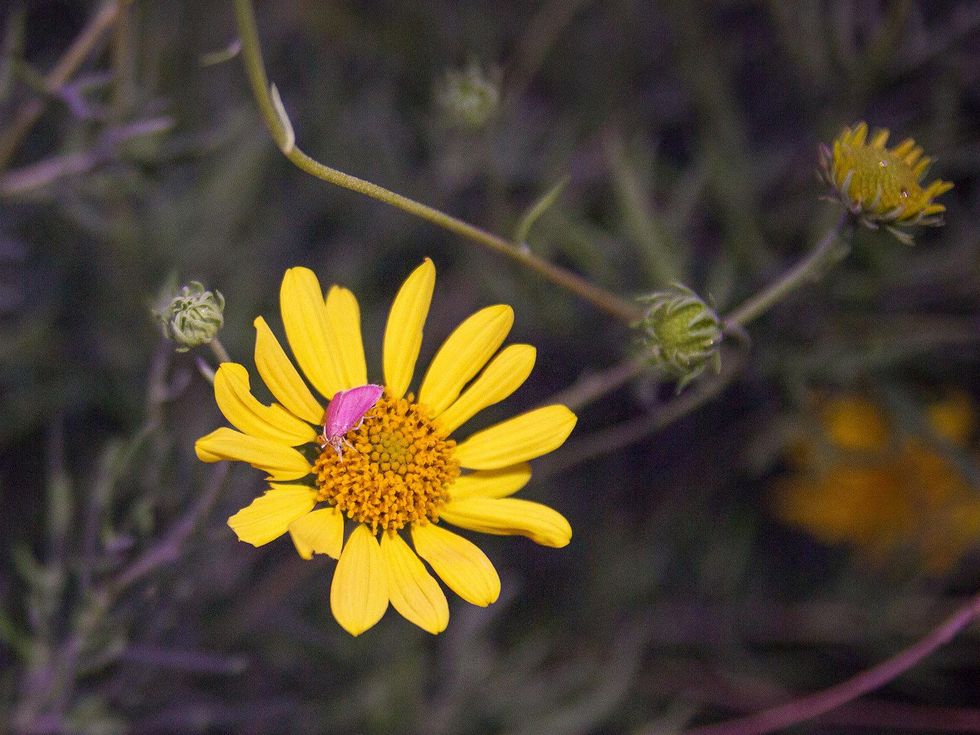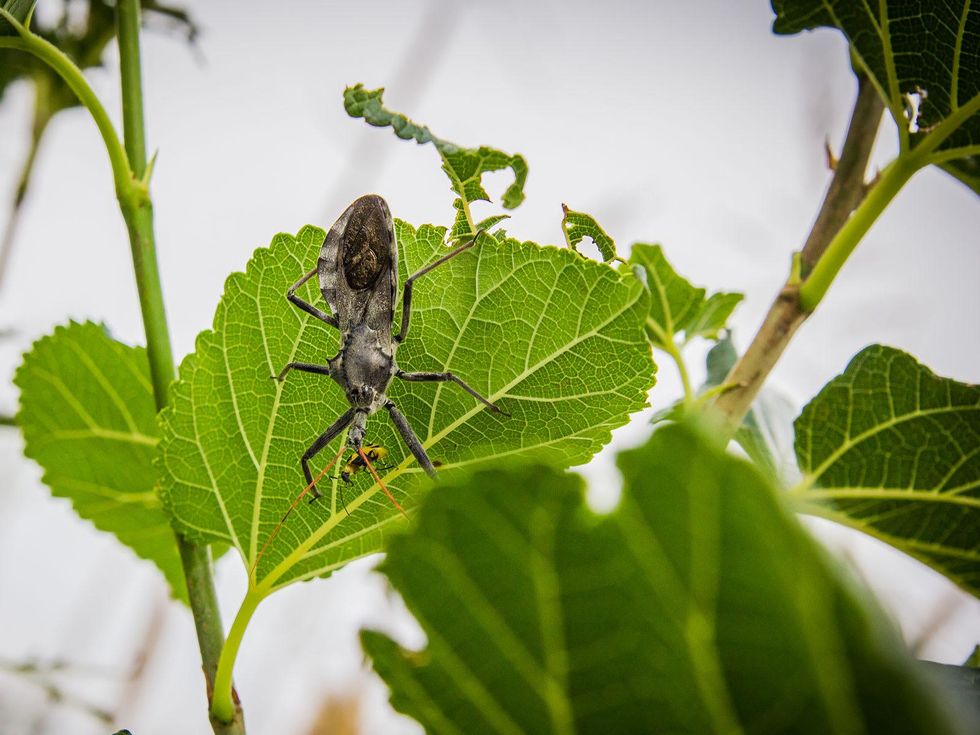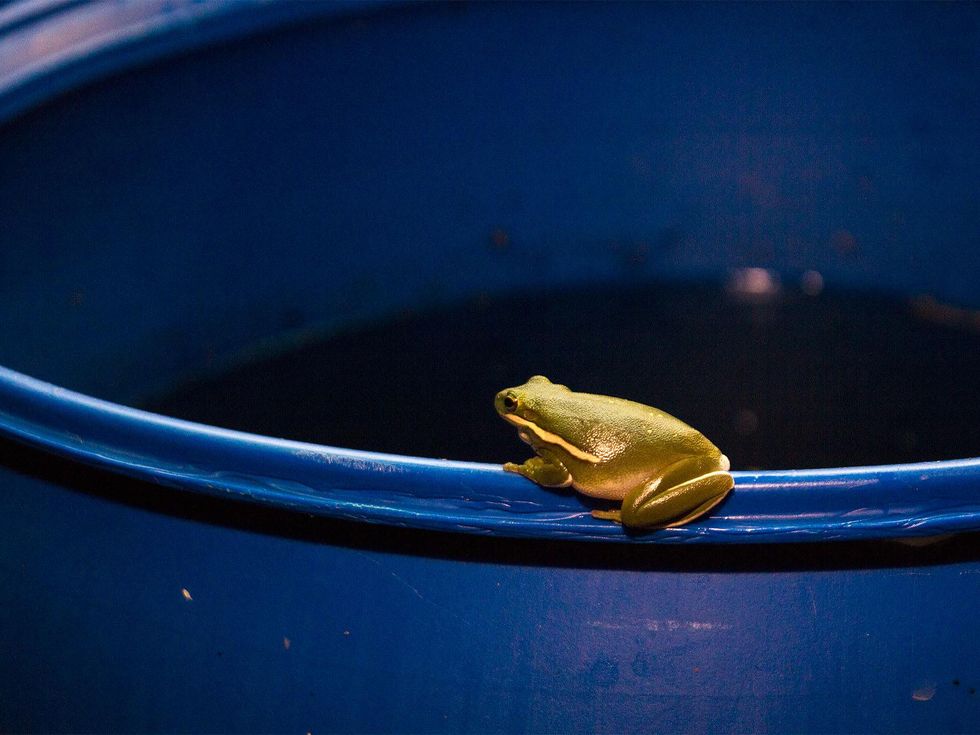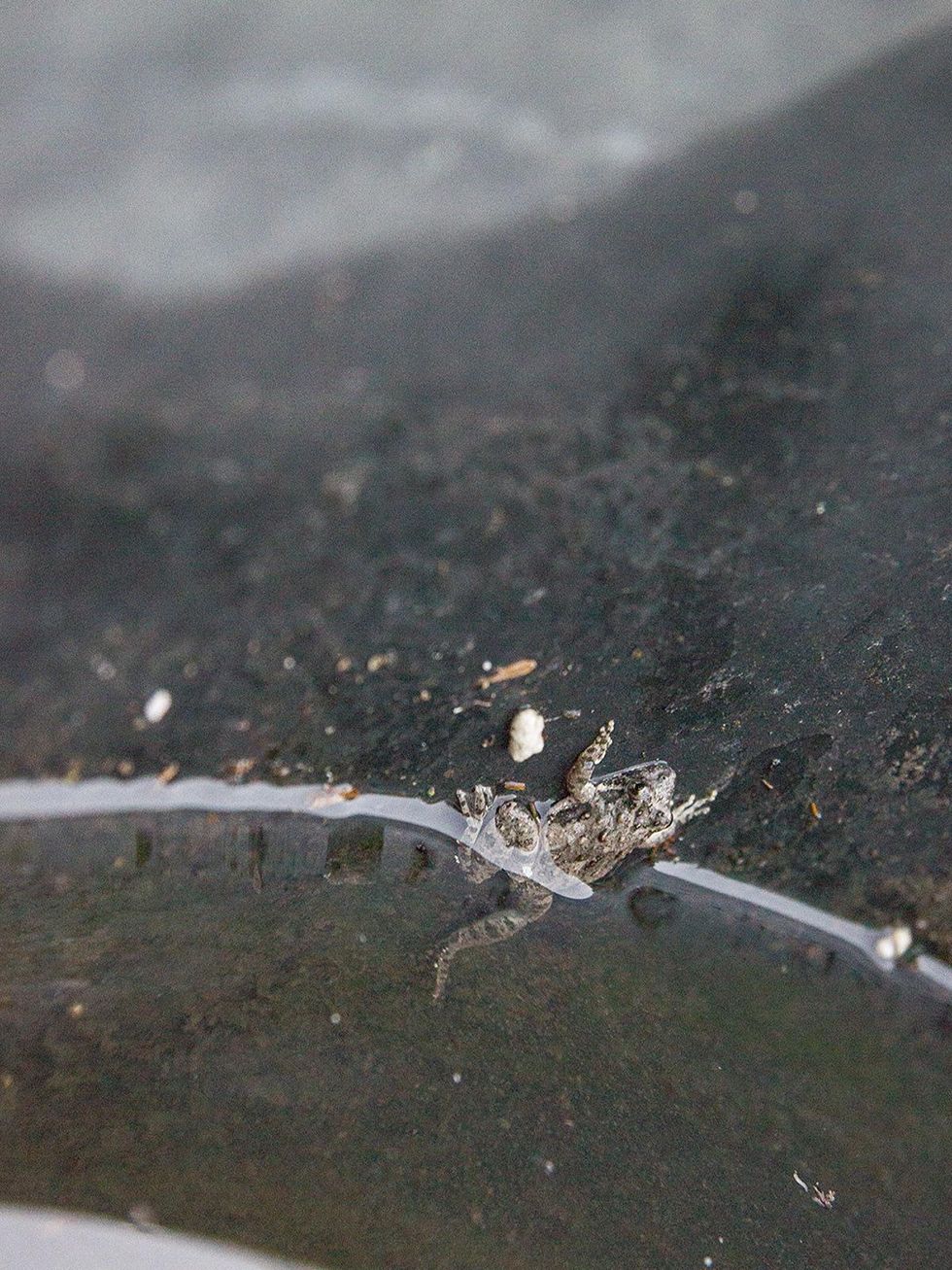The Farmer Diaries
Texas farmer rethinks the merits of pesticides
By no means have I been a big user of pesticides. And when I did resort to a bottle of insect killer, I always used something approved for organic food production, such as neem oil, pyrethrin or spinosad — never a chemical from a bottle covered with a warning about how to reach the poison control center if accidentally ingested.
Nevertheless, I had come to accept the farming model of industrial agriculture: When I saw bugs eating my crops, I thought of how to get rid of them.
Then one day I mentioned to an entomologist friend how I saved my Swiss chard crop last fall by applying spinsosad when blister beetles threatened to devour my greens. I imagined this would impress him, as I was careful not to do anything that would hurt non-target insects, even spraying after sunset to minimize the risk to bees.
This gardening season became an unintentional experiment that tested my use of organic pesticides, revealing whether they were truly needed.
His response was less than enthusiastic. He mentioned that I could have saved my crop just as effectively, and the beetles too, by relocating them — by picking them off and setting them somewhere else. These beetles weren't out to get my chard. They were just hungry. Any leaves would do.
I knew that all insecticides were a potential hazard to all wildlife. But I thought I could be careful enough to avoid killing what needed to live. Not so, said my entomologist friend.
The problem as he saw it was that very way of thinking, both in conventional and organic farmers, that somehow a poison will kill only what it's intended to kill and leave everything else alone. We think we can spray at certain times of the day, or apply just a little, and everything will be okay. From his perspective, such thinking is ignorant and unfounded.
This gardening season became an unintentional experiment that tested my use of organic pesticides, revealing whether they were truly needed. Between an injury and a personal setback, my enthusiasm for farming drained. Only half-committed to growing anything, I didn't intervene to eradicate pests.
In the past, I'd have sprayed my crops with one insecticide or another, or sprinkled them with diatomaceous earth. But this year, if harlequin bugs wanted to eat my collard greens, I let them. If cucumber beetles infested my cucumber vines, so be it. When blister beetles descended on my Swiss chard this October, I let them have their fill.
The consequences of my inaction were negligible. The blister beetles did eat whole Swiss chard plants to the ground but left others only mildly tattered. And the ones they did consume are growing back with tender, soft new leaves now that the little buggers have moved on.
The collard greens I gave up on last spring, when they were attacked by red and black harlequin bugs, are doing well, especially now that cooler weather has spurred their growth.
When I look back over the year, no pest stood out as being all that troublesome. Even the dreaded grasshoppers gave me little cause for concern.
The greatest scourge came when cucumber beetles landed on my cucumbers and squash plants. Light yellow with black dots, they resemble ladybugs, and their appetite is insatiable. The plants were overcome. I almost reached for the insecticides when I saw what they were doing, for revenge if nothing else.
But as if summoned by a 911 call to Mother Nature, an insect SWAT team came to the rescue: assassin bugs. It's easy to get freaked out by the sight of an assassin bug. Dark gray, huge and sporting a humped back with spikes sticking up, they look like the Terminator of the insect world. It makes me a little unsettled to spot one, and that's even knowing that they're harmless to humans and a plant's best ally.
A week after the cucumber beetle infestation broke out, I spotted assassin bugs under leaves and along stems, noshing a pestilent beetle. My squash and zucchini were saved without sprays; I'm still harvesting from these plants. I did lose my cucumbers, but I think that was my fault; I was negligent in watering.
When I look back over the year, no pest stood out as being all that troublesome. Even the dreaded grasshoppers gave me little cause for concern, repelled from some tender saplings by Surround WP, a non-toxic barrier rather than an insecticide.
I now question if there's any need for any kind of insecticide, organic or not. If I had sprayed the cucumber beetles when they first arrived, I may have killed off the assassin bugs who saved the day.
Additionally, there are all the pretty little insects that present no danger to crops but are a treat to see, such as the beautiful pink moth that drank from a flower in my garden as the sun set on Halloween. Or the pair of black moths with blue segments on their wings that I spotted one night when I looked over a pepper plant with a flashlight. I never want to miss out on seeing such beautiful treasures, unknowingly killing them off with insecticides.
I've spent a great deal of time forming alliances with frogs at my rain barrels, praying mantises in my cedar trees, lacewings at my porch light at night, and several species of birds and reptiles that eat their weight in insects each week. I don't want to risk their well-being.
Following my unintentional experiment of gardening for a year without pesticides, I may write them off for good.




